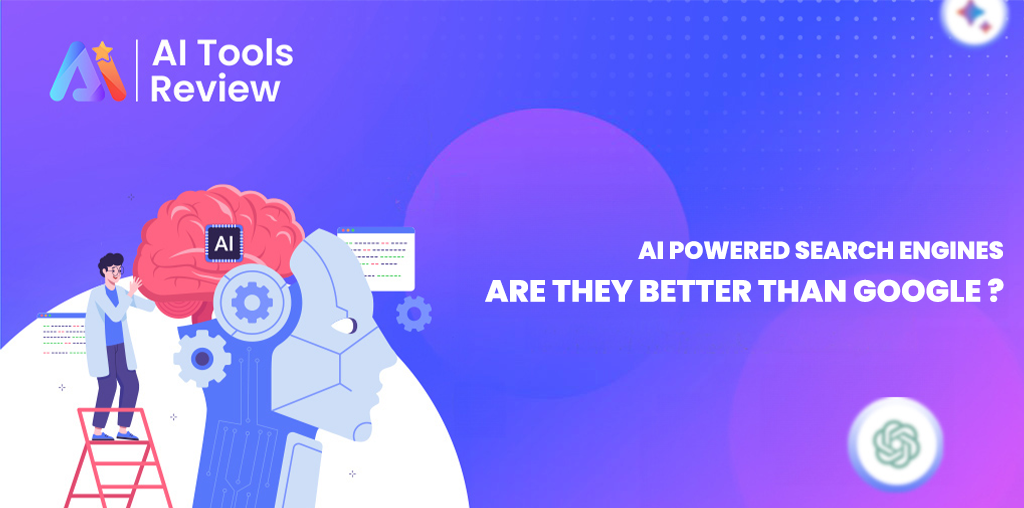The search engine industry is undergoing a major transformation with the rise of artificial intelligence (AI). Google, the longstanding leader in the search engine world, has revolutionised how we access information. But now, AI-powered search engines are beginning to make waves, offering a new way to interact with information, refine search results, and elevate the user experience.
But the question remains: Are AI-powered search engines better than Google? Let’s explore the emerging world of AI search engines, compare them with Google, and see what the future of search might look like.
What Are AI-Powered Search Engines?
AI-powered search engines use advanced artificial intelligence algorithms and machine learning techniques to process, understand, and interpret search queries. Unlike traditional search engines like Google, which rely heavily on indexed content and keyword-based matching, AI search engines aim to provide more intuitive, context-aware, and personalised results.
These search engines are capable of understanding the meaning behind queries, rather than just matching keywords. This deeper comprehension allows AI-powered search engines to deliver more relevant and accurate results based on context, intent, and even previous search history.
Key Features of AI Search Engines
1. Contextual Understanding
AI search engines can grasp the intent behind a search query, going beyond keyword matching. For example, if you search for “best Italian restaurants,” an AI-powered search engine will consider factors like your location, past search behavior, and even the time of day to recommend the most relevant results.
2. Natural Language Processing (NLP)
NLP allows AI search engines to interpret complex search queries written in natural language. Instead of using a string of keywords, you can ask a more conversational question, like “What are the best Italian restaurants near me with vegan options?” The AI engine understands and processes your query to provide highly specific results.
3. Personalized Results
AI-powered search engines can learn your preferences over time. This personalised approach means that your search results are tailored to your interests, browsing habits, and even location. This dynamic personalization helps save time and provides more accurate results.
4. Real-Time Updates
With AI’s ability to analyse and understand data in real time, AI search engines can offer up-to-the-minute results. For instance, if you’re searching for live sports scores or stock prices, an AI-powered search engine can update you instantly without needing to refresh your page.
5. Enhanced User Interaction
Many AI search engines integrate chatbots and voice assistants into their interface, creating a more interactive search experience. For example, you can have a conversation with the search engine to refine results, making the process more intuitive.
How Do AI Search Engines Compare to Google?
While Google is still the dominant search engine worldwide, AI-powered search engines bring several innovations that may make them more efficient and user-friendly in certain scenarios. Let’s break down the pros and cons:
Pros of AI-Powered Search Engines Over Google
- Better Contextual Search: AI search engines understand the meaning behind your queries, which allows them to provide more accurate and relevant results based on content rather than simply matching keywords.
- Enhanced Personalization: AI-powered search engines can analyze your search history and preferences to deliver personalized results. This results in a more efficient and streamlined search experience.
- Natural Language Interaction: AI search engines can process natural language queries, making them more intuitive to use, especially for users who may not be familiar with specific search terms.
- Deeper Insights and Data Interpretation: AI engines are capable of providing richer insights and analyses of data, making them highly valuable for industries like research, e-commerce, and customer support.
Cons of AI-Powered Search Engines Compared to Google
- Less Established: Google has years of experience and a vast index of web pages, making it extremely reliable for finding information. AI search engines, while promising, are still in their early stages and may lack the same level of depth and coverage as Google.
- Lack of Credibility: AI search engines might not always deliver results from reliable sources, as their results are based on algorithms that can prioritize personalization or trends over trustworthiness. Google, on the other hand, is highly optimized to display authoritative sources at the top.
- Privacy Concerns: AI search engines that rely heavily on personalization and user data could raise concerns regarding privacy and data security. Google has faced scrutiny over its privacy practices, but it still provides users more control over their data compared to newer AI engines.
- Accuracy of Responses: While AI engines understand context and intent, they may still struggle with complex queries or nuanced search terms. Google’s vast indexing and algorithm are designed to handle a wide range of queries with greater accuracy.
The Future of Search Engines
AI-powered search engines are here to stay and will continue to evolve. The future of search is likely to involve a blend of traditional search methods combined with AI advancements. We may see Google and other search engines integrating more AI-powered features, such as better natural language processing, personalized results, and real-time updates.
Moreover, with voice search and AI assistants becoming increasingly popular, search engines may further adapt to users’ conversational needs, providing even more tailored and human-like results.
Wrapping Up
While Google remains the dominant search engine for now, artificial intelligence (AI)-powered search engines are bringing a new wave of innovation to the way we search. With better contextual understanding, personalised results, and the ability to process natural language, AI search engines are redefining what’s possible in the search landscape.
So, are AI-powered search engines better than Google? It depends on your needs. For most users, Google still provides the most comprehensive and reliable results. However, AI search engines offer exciting possibilities for a more personalized and intuitive search experience in the future. As AI technology continues to advance, it’s clear that the search engine industry is set for some big changes.


